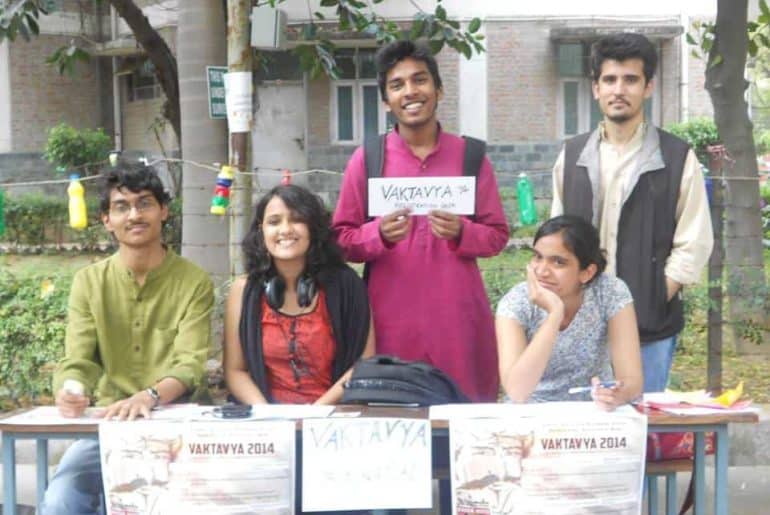A commentary on religion and its impact on the present-day society- this play by Pratibimb deserves a watch. Read the review, and catch a screening soon.
Religion is a part of every individual’s identity and, in the Indian context, the framework for the society as well. For centuries, the Indian subcontinent has seen the influx of new religions owing to foreign invasions, trade, and migrations. With the caste system in place, religion has also been used to dictate one’s position in the social atmosphere and to determine one’s social status.
Caste and religion have been used to deny access to spaces (social and religious) to members of communities which are considered ‘lower’, and they thus remain marginalised. India is no stranger to religious violence and stereotypes which have found themselves ingrained in religious identity. Having received praise for their previous production on drug addiction called ‘TripT’, the Dramatics Society of Delhi Technological University (DTU)- Pratibimb- is back again with their annual street production titled ‘God Promise’ which explores the concept of religion in the present-day scenario, its relation to identity, its various interpretations, and religion as a ‘tool’ devised by humans, for humans.
The play explores multiple scenarios revolving around religion and its societal impact. The most memorable scene from the play, in my perspective, was the build-up in the forest. The actors are seen mimicking voices of animals and birds, and if you’d close your eyes, you might as well confuse it for a real forest. The drum-beats start slow, the birds chirp softly, and an animal is seen lurking in between. He is scared with his eyes frantically search for comfort and familiarity. The drum-beats and the animals’ screeches get louder, and his limbs shake; is he in danger? The drum-beats get faster, the animals launch themselves on him; he is a new prey to their system. Storytelling through street theatre involves the usage of the human body as an instrument, and the play delivers that perfectly.
A parallel storyline runs in the play as the audience moves from scene-to-scene with the creation of a zanjeer– a metal chain. Two workers focus on building the zanjeer, and their boss tells them it isn’t heavy enough every single time, until the zanjeer becomes too heavy to lift and needs to be molten down. With brilliant performance by Naman Roy, the zanjeer serves as a metaphor for the concept of religion and the principles of religion. With time, it becomes too heavy for the society and the society crumbles as a result.
The story moves fluidly and the role of sound plays in a significantly remarkable fashion throughout the performance. The play ends with narratives of different religions, exploring death, love, and loss, with unity in times of grief and distress, leaving the audience with food for thought.
Click here to follow Pratibimb’s Facebook page.
Image Credits: Jaishree Kumar for DU Beat
Jaishree Kumar





